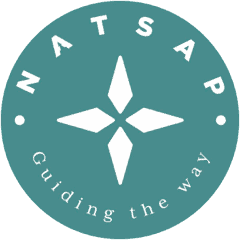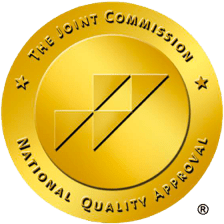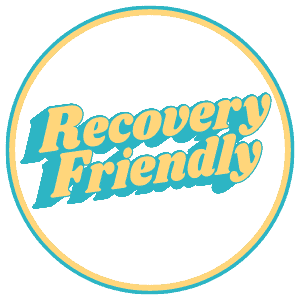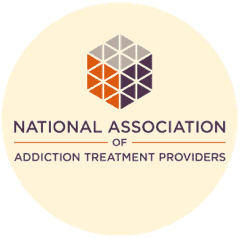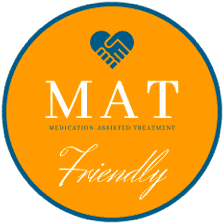Making the decision to get help for a drinking problem is something to be proud of. It isn’t easy to admit you have a problem, and it is even harder to admit that you need professional help. But now that you’ve taken the first step in admitting that you need rehab, the next step is to choose which alcohol rehab option is right for you.
People living in and around Asheville, North Carolina can choose from a variety of alcohol rehab options in the area. Understanding what these options are and who they are designed for can help you make the best decision for your treatment.
Types of Alcohol Rehab in Asheville, North Carolina
Alcoholism treatment is offered across several levels of care, each of which is designed to meet the needs of individuals as they progress through their recovery journey. These include:
Inpatient Residential Rehab
Inpatient or residential rehab is the highest level of care during which clients live at the treatment facility in supervised housing for the duration of their treatment. This level of structure, support, and separation from drugs and alcohol is linked to positive treatment outcomes because clients are removed from the real world and encouraged to focus solely on their recovery. Inpatient alcohol rehab is best for people who are still detoxing, have a severe alcohol use disorder, and don’t have access to safe, supportive housing.
Partial Hospitalization Program (PHP)
Partial hospitalization programs (PHP) are similar to inpatient programs. The only difference is that clients return home or to their sober living home at the end of the day. They participate in the same, all-day treatments for alcoholism, but don’t live in a supervised environment. This level of care is best for people who have already detoxed and have access to safe, alcohol-free housing.
Intensive Outpatient Program (IOP)
An intensive outpatient program (IOP) is a more flexible alcoholism treatment option that requires clients to attend group and individual therapy sessions several days a week for a few hours at a time. It is less intensive than a PHP but grants clients the freedom and flexibility to go to rehab without stepping away from family, work, school, or other obligations.
Outpatient Program (OP)
Outpatient alcohol rehab is similar to IOP but requires fewer hours of counseling attendance. It offers people the ability to receive support on a flexible schedule with an affordable price tag. Outpatient alcohol rehab focuses on helping clients develop valuable life skills and relapse prevention plans that enable them to maintain their sobriety.
Treatment Approaches for Alcoholism Recovery
In addition to multiple levels of care, alcohol rehab centers may use various treatment approaches to help individuals achieve recovery. A rehab center may use more than one approach depending on your needs, but some rehab centers will specialize in a certain approach. Different approaches used for alcohol rehab include:
Dual Diagnosis Alcohol Rehab
Many people who struggle with alcoholism also have a mental health condition, such as depression, anxiety, or bipolar disorder. If you have a drinking problem and mental health issues, you should consider dual diagnosis alcohol rehab. Dual diagnosis rehab offers comprehensive treatment addressing both mental health and alcohol abuse.
Medication-Assisted Treatment (MAT) for Alcoholism
Medication-assisted treatment (MAT) involves treating substance abuse issues with medication and behavioral therapy. While MAT is often associated with opioid addiction treatment, it can also be used to treat alcoholism. Upon your assessment, an addiction specialist can help you decide if MAT is right for you.
Faith-Based Care
Some alcohol rehab centers in North Carolina use a faith-based approach. They may rely on religion, spirituality, or 12-Step programming to help alcoholics stop drinking.
Evidence-Based Treatment
Evidence-based treatment is treatment that has been proven clinically effective, considers the needs of the individual, and utilizes the expertise of the clinicians providing the care. Evidence-based alcohol rehab may involve therapies such as cognitive behavioral therapy (CBT), family systems therapy, dialectical behavioral therapy (DBT), motivational interviewing (MI), and more.
Gender-Specific Alcohol Rehab
Gender-specific alcohol rehab refers to alcohol treatment programs that are designed specifically for men or women. These programs are designed to address issues that are unique to each gender, such as trauma, relationship problems, or parenting responsibilities.
For women, gender-specific alcohol rehab programs may offer support for mothers, help with issues related to body image and self-esteem, and address the social stigma of being a woman with alcohol addiction. For men, gender-specific alcohol rehab programs may address issues such as anger management, aggression, and societal expectations of masculinity.
Learn More About Your Asheville, NC Alcohol Rehab Options Today
The best way to choose the right alcohol rehab program for you is to consult with a treatment specialist. With a brief phone call, you can verify your insurance and complete a pre-assessment that helps determine your needs. Based on your situation, the severity of your drinking, and your treatment goals, the treatment specialist can recommend the best alcohol rehab options for you.
At Next Step Recovery, we consider ourselves Asheville’s best alcohol rehab program for men. We leverage the power of community, structure, and self-love to make sustainable sobriety a reality.
Taking back your life is never easy, but it is possible. To learn more about your alcohol rehab options in Asheville, North Carolina, or to find help for yourself or a loved one, please contact us today.



